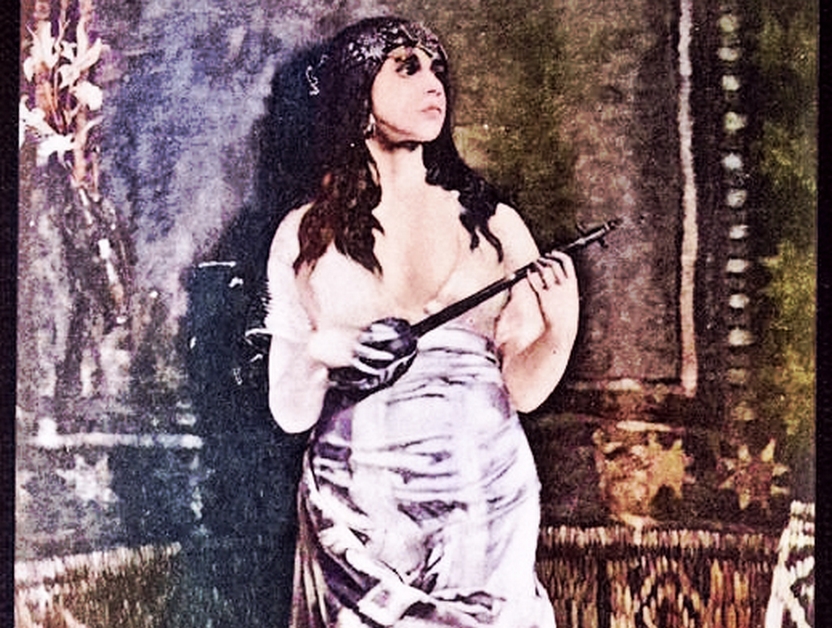Simon Dubnow (1860 Mstislavl – 1941 Riga) was an eminent Russian Jewish historian, publicist, and public activist. He was a well known advocate for Jewish national-cultural autonomy in the diaspora. His views on autonomism were at the center of his historical scholarship and his political activism. Dubnow was sure that large numbers of Jews would never agree to move to Eretz Israel and therefore rejected Zionism as a realistic solution to the suffering of Jews. Neither did he believe in socialism or assimilation. His demands focused on the emancipation of Jews in the diaspora and their autonomy with regard to communal self-government, language, culture and education. As a historian, Dubnow can be regarded as a pioneer in combining Jewish history with general history, introducing a sociological emphasis in the study of East European Jewry, study of Jewish communities, the kahal and Hasidism. Since the late 19th century Dubnow was involved in public and political Jewish life in Saint Petersburg, Odessa, Vilnius and other cities, He was an influential lecturer of Jewish history and an activist in many public, political and cultural organizations including the Society for the Promotion of Enlightenment among the Jews of Russia, the Union for the Attainment of Full Equality for the Jewish People in Russia, and the "Folkist" Party. In 1922 he moved to Berlin and after Adolf Hitler came to power in 1933, Dubnow settled in Riga. In 1941 Dubnow was murdered in the Nazi-established ghetto in Riga. Various facets and phases of Dubnow’s life and activities are reflected in his personal papers. Some of the materials in the collection include articles written by Dubnow for various journals and newspapers, numerous articles about him and his work, reviews of his works and interviews. Other documents demonstrates Dubnow’s importance as a central figure in the activities of the Union for the Attainment of Full Equality for the Jewish People in Russia (1905-1907) and in the formation and activities of the “Folkist” Party (1907-1918). The collection contains some letters from readers of Dubnow’s essays the "Letters on Old and New Jewry", drafts of Dubnow's works and presentations. The collection also contains Dubnow's extensive correspondence with prominent intellectuals and public figures related to his scholarly and public activities in different periods of his life. In addition, papers related to activities of the World Jewish Congress (1936-1937) are also included in the collection --

| Title |
Dubnow, Simon. |
|---|---|
| Contributors |
F.Perles, 1874-1933 A. D.Gordon Lucien,Wolf 1857-1930 A. Z.Shteĭnberg (Aaron Zakharovich), 1891-1975 Alex,Bein 1903-1988 RoseGinosar Josef,Meisl 1882-1958 Saul Phinehas,Rabbinowitz 1845-1910 Anna Pavlovna,Vygodskaia 1868- DavidLandmann David,Mowshowitch 1887-1957 Samuel,Lewin 1890-1959 Eugène,Vinaver 1899-1979 KhaimKorobkov R.Rubinshteĭn, 1891-1967 Samuel Hugo,Bergman 1883-1975 Obshchestvo dli︠a︡ rasprostr. prosv. mezhdu evrei︠a︡mi v Rossīi Society for the Attainment of Full Civil Rights for the Jewish People in Russia Folkspartey (Organization) World Jewish Congress Evreĭskoe istoriko-ėtnograficheskoe obshchestvo (Saint Petersburg, Russia) Wiener Library Yivo Institute for Jewish Research |
| Notes |
Simon Dubnow's papers are also located in the private collection of Lucien Wolf at The Central Archives for the History of the Jewish People (PS-0091). These papers contain an article by Dubnow "Inter arma" (1940) and three letters from S. Dubnow to Lucien Wolf (1921-1924). In these letters Dubnow requests help to assist the Petrograd Jewish People’s University, and the Kovno Jewish Higher Courses to collect materials about pogroms in Ukraine. In addition, Dubnow's letters from 1930s to Aaron Steinberg are located in the latter's private collection in The Central Archives for the History of the Jewish People (P159) These letters refer, inter alia, to different historical works of Dubnow, Steinberg's articles in periodicals, contemporary political events (such as Jewish politics, the Nazis rise to power in Germany, the Communist regime in the USSR) and Dubnow's life in Riga There is an additional Simon Dubnow private collection located at YIVO Archives in New York (RG87). These materials include records on Dubnow’s helping to establish the idea of Jewish ethnographic history, community registers (pinkasim), other communal documents, papers relating to restrictions and privileges issued by governments to Jewish populations, blood libel trials and the Chmielnicki massacres of 1648-1649, documents from the Russian Justice Ministry and Senate, materials on pogroms in the Russian empire, and Dubnow’s family and general correspondence. |
| Host Item |
Dubnow, Simon - Private Collection |
| Level of Description |
Fonds Record |
| Biographical summary |
Simon Dubnow (1860 Mstislavl – 1941 Riga) was born to a religiously observant family and received a traditional Jewish education. His grandfather, Bentsiyon, was an esteemed rabbinic scholar in Mstislavl. In his youth Dubnow was interested in Haskalah literature, Russian positivists, British utilitarians and Darwinians, and German materialist philosophers. He soon began to rebel against formal religion, criticized the Heder system, and argued for its abolishment. However already in the mid-1880s, he appreciated the historical role of religion in maintaining Jewish identity and supported Jewish nationalism. Dubnow failed to pass entrance examinations to attend a Russian gymnasium and was largely a self-educated man. In 1880 he settled illegally in Saint-Petersburg and began his long association with the Russian-Jewish periodicals Russkii evrei, Razsvet and particularly Voskhod (since 1882), to which he contributed many book reviews, scholarly and literary works. In 1890 Dubnow moved to Odessa, where he became part of a group of Jewish intellectuals and writers committed to a nationalist conception of Jewish identity. Dubnow was the first scholar since Heinrich Graetz to produce a comprehensive history of the Jews and authored many of pioneering works on topics such as general Jewish history, Polish and Russian Jewry, and Jewish communities. He was one of the first historians to subject Ḥasidism to systematic study based upon collected source materials from both the Ḥasidim and their opponents. In 1891 he encouraged and initiated the collection and preservation of Russian Jewish historical documents. Dubnow viewed the history of the Jews as a succession of large autonomous communities, or centers. In a series of essays “Letters on Old and New Judaism” (Russian ed. 1907). Dubnow expressed his theory of autonomism and argued that Jews as a diaspora nation did not require a physical homeland but needed to modernize their communal institutions and gain constitutional recognition of their autonomy in a multinational state. Since the late 19th century Dubnow was active member of the Society for the Promotion of Enlightenment among the Jews of Russia. In 1905, as a public and political activist, Dubnow was active in the Union for the Attainment of Full Equality for the Jewish People in Russia. In 1906 he established the Jewish People's or "Folkist" Party which existed until 1930s in the Ukraine, Russia, Poland and the Baltic countries. In 1908 he was one of the founders of the Jewish Historical and Ethnographic Society in St. Petersburg, that issued the scholarly journal Evreiskaia starina and taught at the Higher Courses in Eastern Studies founded by Baron David Gintsburg. He was also a member of the Jewish Literary Society. After the collapse of the Russian Empire he taught at the Petrograd Jewish People’s University (1919). In 1922 Dubnow emigrated to Berlin and in 1925 became co-founder of the YIVO Institute in Vilnius. He was one of the prominent scholars who taught at the aspirantur of the YIVO - a graduate training program for studies of Jewish culture, that was founded in 1935. With the Nazi ascendence to power in 1933, Dubnow moved to Riga where he began to publish his autobiography Kniga zhizni (Book of Life). He was murdered during the violent dissolution of the Riga ghetto by the Nazis and their Latvian accomplices in 1941. |
| Ownership history |
In 1933 before Dubnow left Berlin and emigrated to Riga, he decided to take a small part of his archive with him. Following the occupation of Riga by the Nazis, the collection was confiscated and transferred to Germany. In 1951 it was found by historian Alex Bein at the Staatsarchiv in Dahlem, and deposited in the Central Archives for the History of the Jewish People in Jerusalem. |
| Language Note |
Russian Yiddish French German Polish Hebrew English some Bulgarian some Lithuanian |
| National Library system number |
990043212570205171 |
| Links |
פרטים על מיקום החומר/Location&access |
-
-
-
-
-
-
-
-
-
-
-
-
-
-
-
-
-
-
-
- Show Next 10 Items out of 480
- Show All
-
-
תנאי השימוש:
Appropriate Conditions of Use Have Been Established for Every Archive File
The terms of use appear on the archival file page on the National Library website.
For more information about the copyright status inquiry service and terms of use for items from the Library’s collections, click here.
MARC RECORDS
Have more information? Found a mistake?

 Sign in with Google
Sign in with Google
 Sign in with Facebook
Sign in with Facebook




